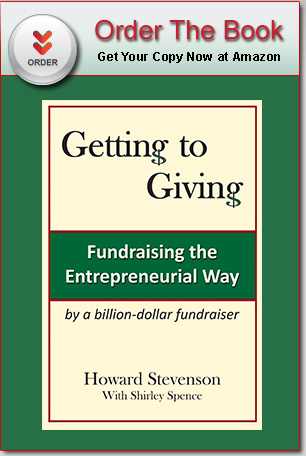


I’ve served on my fair share of boards. Some are better than others, whether for-profit … Read More
“Dive in but always consider impact, which means different things to different people.” That advice from a philanthropy survey respondent got us thinking about the many ways you can make an impact on a social problem you care about.
I find it useful to think about philanthropy as a series of concentric circles with increasingly expansive efforts to tackle a social problem: tactical activities treat symptoms of problems while strategic activities address root causes and transformative philanthropy impacts the entire system. Read More
Well, yes and no. There is a great deal of hype in the media about Millennials so I am not surprised that you are feeling some pressure to reassess your fundraising methods. Each generation has its own culture, reflective of the world it has inherited and shaped, so perhaps it is a healthy exercise. Read More
I recently attended the board meeting of a community hospital that I admire for its good management and was embarking on a fundraising campaign. The Development Director presented a list of “identified areas for philanthropic support” intended for use with major donors, for discussion.
In reviewing the hospital’s list, it occurred to me that another problem is that needs lists – and fundraising communications in general – all too often fail to explain the why’s and the how’s, in terms that are meaningful to donors. Read More
The shoe story came to me as I was preparing to give a talk about fundraising at a higher education institution where I serve on the board. How could I explain to faculty and staff not involved (and, in some case, not interested) in fundraising why it isn’t just begging? Read More
First of all, allow me to congratulate you in having an annual report at all; many nonprofits don’t! Those that do make the effort often produce something with lots of pictures and few facts, or take a limited (often internal) perspective. The Boys & Girls Clubs of the Peninsula (BGCP) offers what I consider to be a much better model for annual reporting. Read More
A growing body of knowledge in psychology and neuroscience suggests that altruism is good not just for the beneficiaries but also for the benefactors. The argument is that helping others makes us happy, and even leaves us healthier and able to live longer lives. I must admit to a certain amount of skepticism about some (well, most) of what happiness experts – yes, they exist – say. But I was impressed by the authors’ willingness to subject themselves to MRI scans to see what happens in the brain when people help others by donating to a good cause. Read More
Naming a building after a major benefactor is a time-honored tradition and one way to express the institution’s gratitude. It is almost, inevitable, however, that the building will outlive its usefulness and be torn down or radically altered (probably with the assistance of another donor) eventually. So, start “being careful” from the start, when you are crafting the gift agreement. Read More
I am increasingly convinced that while the cause may be important, communications about the cause are even more important. One piece of new philanthropic research points to a perhaps obvious but often overlooked truth: If potential donors and volunteers are not aware of existing needs, they will be less likely to engage in philanthropic behavior. Also, more often than not people respond to a perceived need, rather than an objective need. Read More
Many universities engage their students in fundraising, to reach out to alumni for donations and/or send letters of thanks for gifts. That tradition, however, seems to be changing and perhaps not for the better. We thought you might appreciate this (disguised!) letter from one donor to his university alma mater. Read More